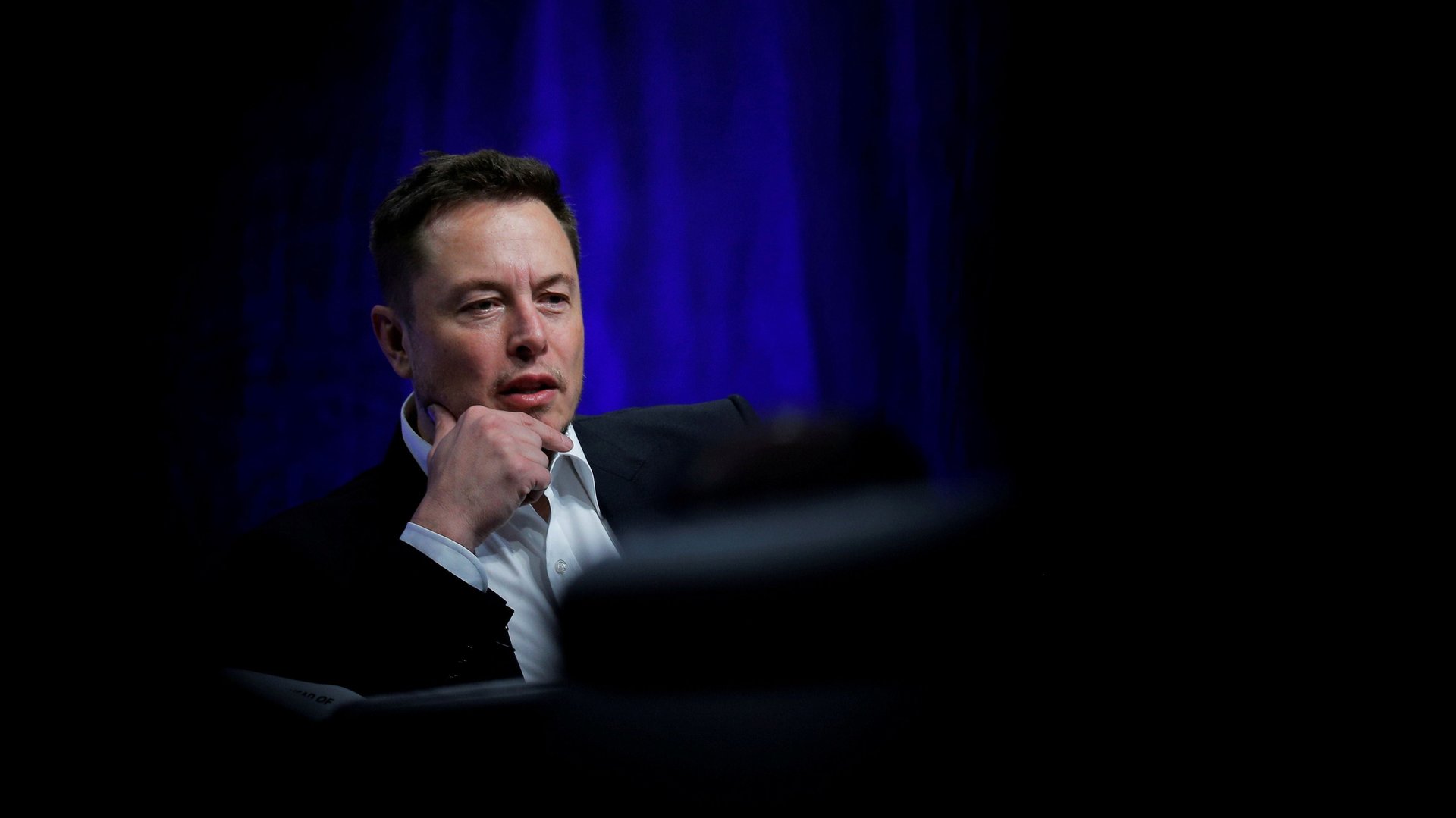Elon Musk is too ambitious for Tesla’s own good
In April, Elon Musk admitted Tesla shot itself in the foot by attempting to overly automate its production process. “Humans are underrated,” he tweeted.


In April, Elon Musk admitted Tesla shot itself in the foot by attempting to overly automate its production process. “Humans are underrated,” he tweeted.
Tesla got there because Musk had ordered engineers to figure out how to “automate everything” for Model 3 production, the electric car he’d pledged to sell on the mass market for $35,000. Musk insisted on automation over concerns from his team, who warned that robots weren’t well suited to certain production steps, like installing seals on car doors, CNBC reported yesterday (Oct. 19). The expensive robots Tesla bought for the job never worked correctly and were taken out of use over the summer.
If Musk’s mea culpa in April was unusual, his overreach was anything but. The automation incident was “emblematic” of Musk’s management style, CNBC reported:
Interviews with 35 current and former employees depict an ambitious CEO whose drive to make everything from scratch sometimes impaired his decision-making, leading him to approve expensive projects that failed and delayed production. They also described occasions where Musk refused to consider methods pioneered by other automakers and ignored advice from industry veterans within Tesla’s ranks.
Other time-consuming and costly projects Musk insisted on included the “vision system” and the “magic carpet.” The former was designed to accelerate quality inspections for fully assembled Model 3s. High-resolution cameras snapped photos of completed cars and sent them to inspectors in another part of the factory to approve or flag remotely. But former employees told CNBC the cameras didn’t always get a clear shot of important parts, and also got in the way of workers.
The “magic carpet” was supposed to be a software-controlled conveyor belt that moved parts to Model 3 production workers. Tesla reportedly planned to spend $40 million on the project and dedicated 20 engineers to it for three months, but the system never worked.
Tesla was also constrained by Musk’s micromanaging and insistence that it do things differently from traditional automakers. Musk rejected everything from organizational methods to industry terminology used by companies like GM and Toyota, CNBC reported, preferring Tesla develop its own approach. Musk also pushed for Tesla to build its own software instead of relying on enterprise programs from companies like SAP. Employees told CNBC the programs were often incomplete and that information could get lost among the many disparate systems.
Tesla met its goal of producing more than 5,000 Model 3 cars a week in the third quarter. But the $45,000 sticker price is a far cry from that $35,000 goal (Tesla argues the true cost is closer to $30,000 when you account for federal tax incentives, state rebates, and savings on gas). The company is nowhere near producing the 500,000 electric cars this year that Musk forecast in 2016.